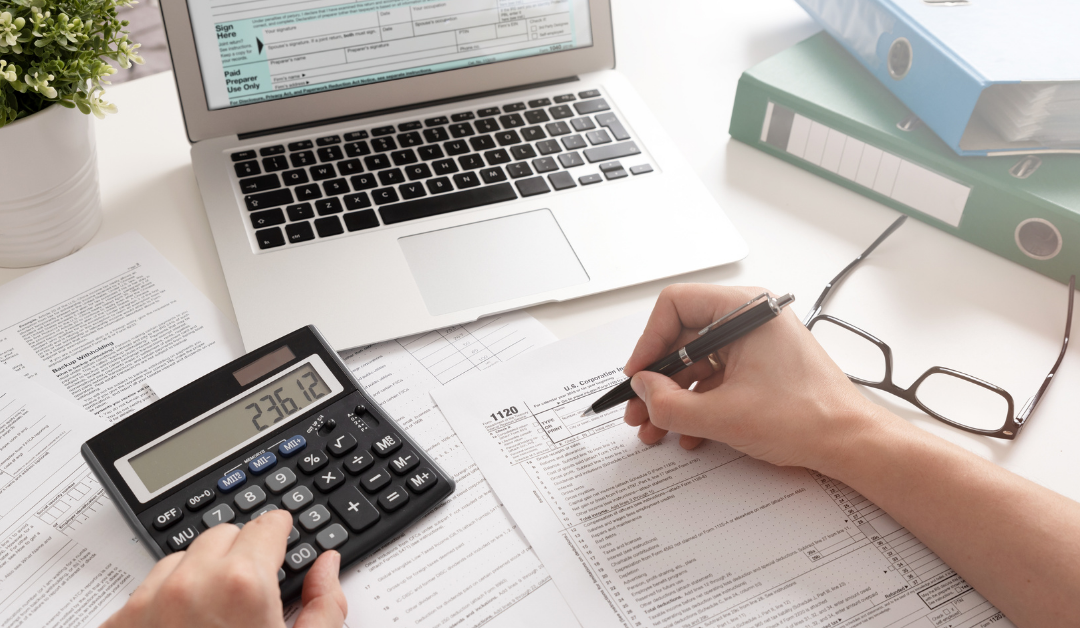
by Blair Butters | Apr 28, 2021 | General Tax and Accounting Information, IRS, Tax Planning
As we all know, the ancient Greek quote “change is the only constant” most certainly applies to your taxes, and this year has seen more changes to tax guidelines and requirements than in many other years. So, in today’s blog, we wanted to shine a light on some of the most common ones. Change in Charitable Donation Deductions for Non-Itemizers In 2020, the IRS allowed taxpayers who did not itemize deductions to deduct as much as $300 in cash contributions made to charity, for both filing single and jointly. In previous years, this deduction was only an option if you chose to itemize your deductions. However, the passing of The Coronavirus Aid, Relief, and Economic Security Act (The CARES Act) allowed non-itemizers a charitable deduction. These changes are set to apply through 2021 as well with the same $300 deduction for individuals and an increase to $600 if you file as a married couple. These particular changes were made in order to encourage taxpayers to donate to charitable causes throughout the pandemic. Higher Standard Deductions Standard deduction amounts for each filing status have also increased. In order to account for inflation, these numbers typically rise by $200-$300 each year regardless of circumstance. An increase in standard deduction amounts ultimately reduces the amount of income you are required to pay taxes on. Here are the tax brackets and the new deduction amounts for 2021. Married filing jointly: $25,100 – up $300 from 2020 Married individuals filing separately: $12,550 – up $150 Head of household: $18,800 – up $150 Single: $12,550 – up $150 Required Minimum Distributions...

by Blair Butters | Feb 24, 2021 | General Tax and Accounting Information, Tax Planning
A report by Gallup indicates that the number of people working from home has jumped from 28% in April 2020 to almost 46% in September 2020, showing a rising trend. So how does this affect your taxes? If you’re working from home as a W2 employee, unfortunately, you can’t take any deductions. However, for those reporting their business on Schedule C of their personal income tax return, usually sole proprietors or Single-Member LLCs, or gig economy workers – AKA someone who works on short-term contracts or freelance work as opposed to a permanent job – then there are a number of deductions you can claim. In this month’s blog, we walk you through some of the most common ones and how to calculate them. Your Home Office One of the first things you may be able to deduct is expenses related to your home office. A home office is a space in your house used regularly and exclusively for business purposes. So, for example, if your office is in a second bedroom which is regularly and exclusively used for business, then the room qualifies as a home office. If the room is also used as a spare bedroom when guests are visiting, or as a playroom for the kids, the room does not qualify as it fails to be exclusively used for business. You will need to know the square footage of your home office space and the square footage of your home. This ratio will determine the percentage of various home expenses that can be claimed as a home office deduction. Once you have this information, there are...

by Blair Butters | Feb 12, 2021 | General Tax and Accounting Information, IRS, Tax Planning
2020 was the year that many dreams turned into reality as the health crisis and resulting economic climate spurred many people to start their own businesses. Business Insider recently reported that the number of new businesses applied for in 2020 had reached a 13 year high. If you started your business in 2020, the transition may make you feel apprehensive about filing your taxes for the first time as a business owner, so in this month’s blog we have put together a checklist of items you can use to get prepared. Gather Formal Documentation The first thing you will need in order to file your business taxes is formal documentation. Any tax professional will want to know about your products, industry, the state your business is filed in, and the names of any owners. It’s also a good idea to bring the following documents with you: Articles of Organization or Incorporation The formal name of your business (as registered, if applicable) The structure of your business (LLC, Sole Proprietor, Partnership, Corporation etc.) FEIN, if one was obtained Make sure you have all of this ready for your tax professional to avoid any unnecessary time delays. Financial Documentation The next, and most obvious, documents to gather are your financial statements. You will need: Your profit and loss statement – the financial statement that summarizes the revenues, cost of goods, and expenses incurred during a specified period. For the first year, it is generally from the date business began to the end of the year. Your balance sheet – a financial statement for a business that lists assets, liabilities, and equity...





Recent Comments